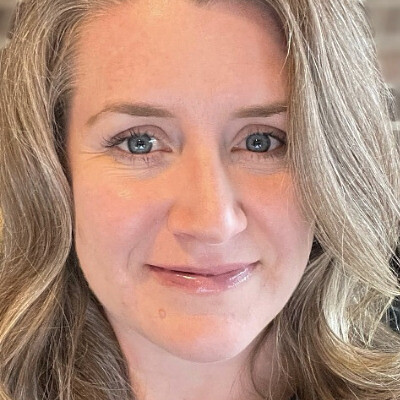This Lightning Talk describes a new collaboration between the Medical School and School of Public Health at the University of Minnesota. “The Minnesota Way” refers to a problem solving curriculum taught to Master’s of Healthcare Administration students. A fieldwork project introduced four students to a quality improvement project in the Department of Psychiatry and Behavioral Sciences regarding complex clinical documentation.
The MN MHA Minnesota Way of problem solving consists of three main phases; Define, Study, Act. The define phase focuses on stakeholder analysis and problem definition which lends itself to interprofessional perspectives and learnings. The Department of Psychiatry and Behavioral Sciences invited MHA-student collaboration on a one-year project to improve documentation of complex care to accurately capture complexity of patients served and services provided. This metric was chosen not only to improve clinical quality but also financial reimbursement.
Over the course of eight weeks, students partnered with preceptors to refine the scope of their work and hone their deliverable. This project required the students to demonstrate knowledge of all IPEC competencies. Communication was paramount as they navigated numerous stakeholders. Roles and responsibilities within behavioral health are complex and overlapping. Students needed to manage their own teamwork skills as they divided and delegated a large project into a realistic project. Finally, students encountered values and ethics as clinicians struggled with questions about financial implications of this work for their patients.
This Lightning Talk presents a novel interprofessional initiative highlighting two professions less consistently involved in IPE - healthcare administration and psychology. The talk will be informative for Nexus Summit attendees interested in addressing the realities of healthcare financing within the clinical learning environment. The pilot project summarizes symbiotic benefits to both MHA students and clinical preceptors of forming new collaborations. Behavioral health patients and providers are often underserved - partly a result of financial realities. This abstract showcases work aimed at improving the value of care for an underserved population while educating future healthcare professionals. Presenters will discuss future opportunities to expand upon this pilot with additional initiatives.
In support of improving patient care, this activity is planned and implemented by The National Center for Interprofessional Practice and Education Office of Interprofessional Continuing Professional Development (National Center OICPD). The National Center OICPD is accredited by the Accreditation Council for Continuing Medical Education (ACCME), the Accreditation Council for Pharmacy Education (ACPE), and the American Nurses Credentialing Center (ANCC) to provide continuing education for the healthcare team.
As a Jointly Accredited Provider, the National Center is approved to offer social work continuing education by the Association of Social Work Boards (ASWB) Approved Continuing Education (ACE) program. Organizations, not individual courses, are approved under this program. State and provincial regulatory boards have the final authority to determine whether an individual course may be accepted for continuing education credit. The National Center maintains responsibility for this course. Social workers completing this course receive continuing education credits.
The National Center OICPD (JA#: 4008105) is approved by the Board of Certification, Inc. to provide continuing education to Athletic Trainers (ATs).
This activity was planned by and for the healthcare team, and learners will receive Interprofessional Continuing Education (IPCE) credit for learning and change.


Physicians: The National Center for Interprofessional Practice and Education designates this live activity for AMA PRA Category 1 Credits™. Physicians should only claim credit commensurate with their participation.
Physician Assistants: The American Academy of Physician Assistants (AAPA) accepts credit from organizations accredited by the ACCME.
Nurses: Participants will be awarded contact hours of credit for attendance at this workshop.
Nurse Practitioners: The American Academy of Nurse Practitioners Certification Program (AANPCP) accepts credit from organizations accredited by the ACCME and ANCC.
Pharmacists and Pharmacy Technicians: This activity is approved for contact hours.
Athletic Trainers: This program is eligible for Category A hours/CEUs. ATs should claim only those hours actually spent in the educational program.
Social Workers: As a Jointly Accredited Organization, the National Center is approved to offer social work continuing education by the Association of Social Work Boards (ASWB) Approved Continuing Education (ACE) program. Organizations, not individual courses, are approved under this program. State and provincial regulatory boards have the final authority to determine whether an individual course may be accepted for continuing education credit. The National Center maintains responsibility for this course. Social workers completing this course receive continuing education credits.
IPCE: This activity was planned by and for the healthcare team, and learners will receive Interprofessional Continuing Education (IPCE) credits for learning and change.
Learners can claim CE credit by completing the Daily Evaluation.



